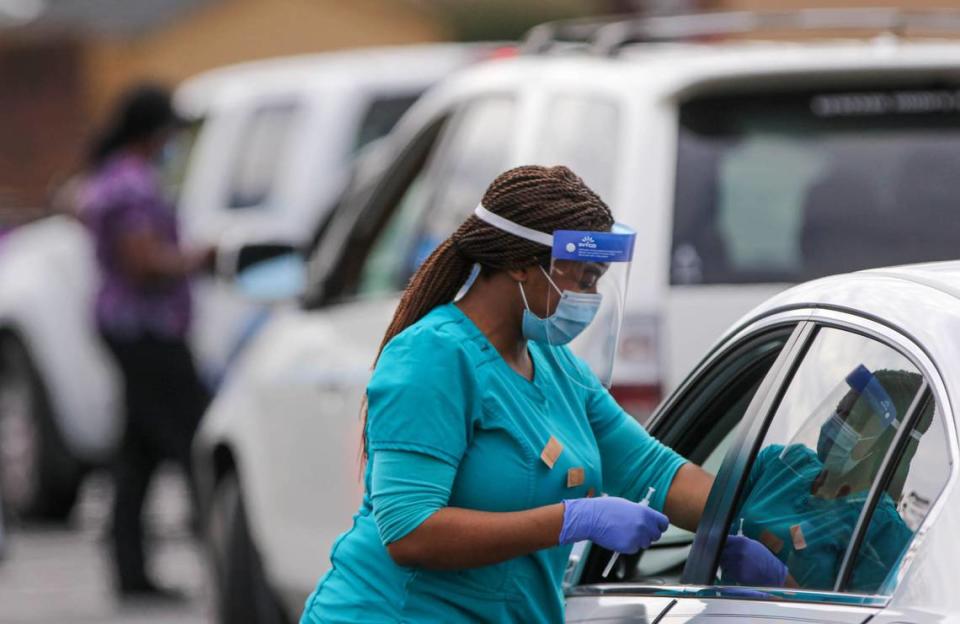Who is resisting COVID vaccines in SC — and why? Here’s what we found
Marcus Polk, 64, still isn’t convinced that COVID-19 vaccines do any good.
Polk, a construction site safety engineer who lives in Winnsboro, a small town north of Columbia, has a litany of concerns about the doses.
He says he had a violent reaction to a flu shot once. He thinks the development of coronavirus vaccines was too rushed. He figures there’s no point to inoculation if “breakthrough” COVID-19 cases exist.
The Centers for Disease Control and Prevention’s pandemic guidelines have been inconsistent and are seemingly part of a liberal agenda, Polk added. The vaccine rollout has “political overtones,” too.
“I very seldom get sick on anything, so why do I want to take a chance on it?” said Polk, a conservative Republican, of being vaccinated. “Even now with (case) numbers going down, I still don’t plan on getting it.”
He’s hardly alone in his skepticism about the shots. South Carolina’s public health agency is facing a wall of vaccine hesitancy and opposition, as the Palmetto State’s inoculation campaign continues to sputter.
The seven-day average of new first-dose vaccinations has plunged in recent weeks. And the U.S. Department of Health and Human Services has estimated that 15% of the state’s population is vaccine hesitant, which could impede efforts to achieve widespread COVID-19 immunity.
Only about 34% of South Carolinians 12 or older have completed vaccination, estimates show.
Dr. Edward Simmer, director of the S.C. Department of Health and Environmental Control, acknowledged the matter during a DHEC board meeting earlier this month.
“Hesitancy is becoming a bigger issue for us,” said Simmer, who wants to bolster vaccine uptake via church partnerships, inoculations at local fairs and other initiatives.
But “vaccine hesitancy” is not a simple, one-issue subject in South Carolina. It’s a complicated phenomena that will take time to address because of its patient-specific nature, experts say.
Some residents are simply nervous about the vaccines’ possible side effects. Others are adamantly opposed to rolling up their sleeves for a shot.
Polk, for example, said he’s against vaccination for now, but if he develops any underlying health conditions as he grows older, he may decide it’s worthwhile.
“No one group is a monolith, right? I think it’s important to understand that people have a variety of different reasons for not getting vaccinated,” said Ashley Kirzinger, associate director of public opinion and survey research at the Kaiser Family Foundation, a nonprofit that conducts national polling on COVID-19 issues.
“Some people have legitimate concerns about the safety of the vaccines,” she said, and others “really think that the whole pandemic has been exaggerated.”
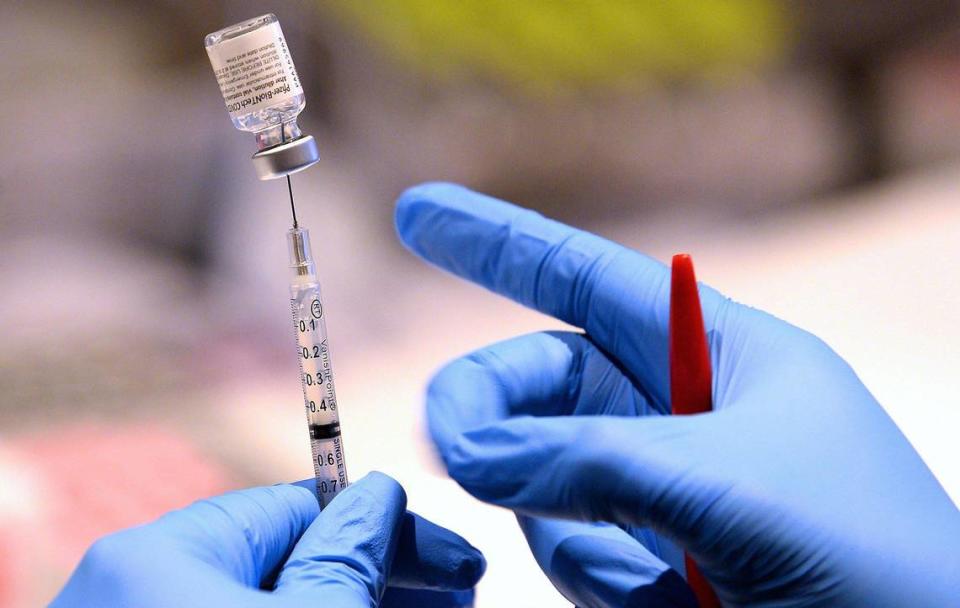
‘I’m healthy enough’
A range of demographic groups are particularly hesitant or uninterested in being vaccinated immediately, including Republicans, white evangelical Christians and 18- to 29-year-olds, according to surveys from the Kaiser Family Foundation and Pew Research Center
Young adults in South Carolina, Simmer said, have been noticeably less enthusiastic about the shots. Roughly 6.5% of the state’s estimated population is 20- to 24-years-old, yet that age group accounts for just 0.7% of all S.C. vaccine recipients with at least one dose.
“They were in that ‘wait and see’ group,” Kirzinger said. “Some of them are also in this group of ‘I’m less likely to get sick,’ ‘I don’t see (this as) that big of a threat.’”
Brittany Brown, a 24-year-old administrative assistant for a tree removal company in Ridgeland, a town along Interstate 95 in rural Jasper County, has no plans to get inoculated, for example.
“I feel like I’m healthy enough that I don’t really need a vaccine,” Brown said.
The lack of long-term safety data on coronavirus vaccines is also troubling to Brown. Public health officials, she added, can say nothing to convince her otherwise.
Experts regularly stress that young people are less likely to be hospitalized or die from COVID-19, but they can still spread the pathogen to others or become coronavirus “long-haulers” who face debilitating conditions for several months.
“I have family members who have gotten the vaccine,” Brown said, “but I also have friends and other family members that haven’t.”
There’s a mix of opinions, she said.
Paul Watson, 44, also isn’t concerned about suffering from severe COVID-19 side effects, given that the coronavirus has taken its greatest toll on the elderly.
The Blythewood High School social studies teacher and varsity wrestling coach said he would get a shot if he were older or had health complications, but since he’s in good shape, he’s not sweating it.
“We’ve only seen a handful of tip-top healthy people succumb to COVID,” Watson said. “That happens, of course, but I just feel confident that this is not going to affect me.”
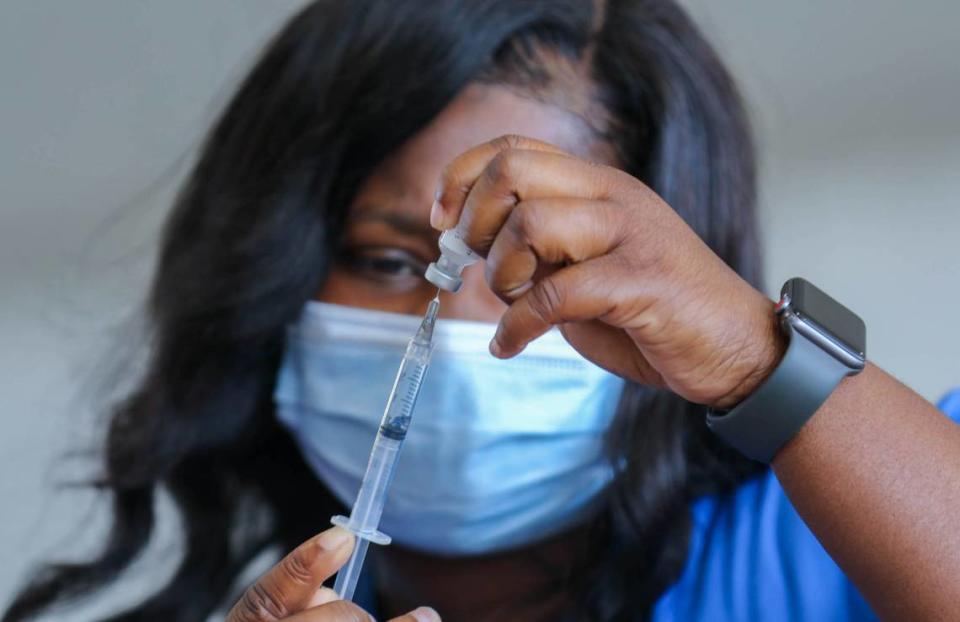
More than 4,000 people 50 or younger in South Carolina have been hospitalized due to the coronavirus, according to DHEC, and about 430 residents in that age group have died.
DHEC does not specifically report the percentage of those people who had underlying health conditions, but one CDC study found that the risk for COVID-19-related hospitalization and death was low for people under 50 who lacked pre-existing health issues. Just over 4% of those under 50 without underlying conditions were hospitalized after contracting the coronavirus, and less than 0.2% died from COVID-19, CDC researchers found.
“The science to me says ‘Paul, you can get by without getting this shot,’” said Watson, who lives in Columbia and has been vaccinated against childhood diseases like measles and polio.
He rejects flu shots, though, and blames his grandfather’s death on an influenza inoculation.
Watson is also unswayed by the argument that he should get a coronavirus vaccine to protect others, even if he personally feels invulnerable to COVID-19.
“I just don’t worry about that,” said Watson, adding that he wears a mask in public and takes other advised precautions. “Pretty much everything should be OK if masks work like everyone says they do.”
‘So incredibly politicized’
Distrust of the government, meanwhile, has been a major sticking point for Republicans and conservatives unwilling to get vaccinated, Kirzinger and Simmer said.
Gray Smith, for example, is not a registered Democrat or Republican, but he describes himself as a constitutional conservative. He studied biology at Princeton University in the 1970s and now lives on Hilton Head Island.
Smith, 69, will never get an mRNA-based vaccine like Pfizer-BioNTech’s or Moderna’s, he said. He’s also uninterested in Johnson & Johnson’s shot.
Coronavirus vaccine data in the federal Vaccine Adverse Event Reporting System, or VAERS, are disturbing, he said. (Clinical trials and real-world studies have found the vaccines to be safe and effective.)
Smith cited a segment from Tucker Carlson, the conservative Fox News host, in which Carlson used VAERS data to suggest that 3,362 Americans died from late December to April 23 because of the vaccines.
(PolitiFact recently labeled Carlson’s remarks as “highly misleading.” The CDC has analyzed the VAERS data and has found no “causal link” between COVID-19 vaccines and deaths.)
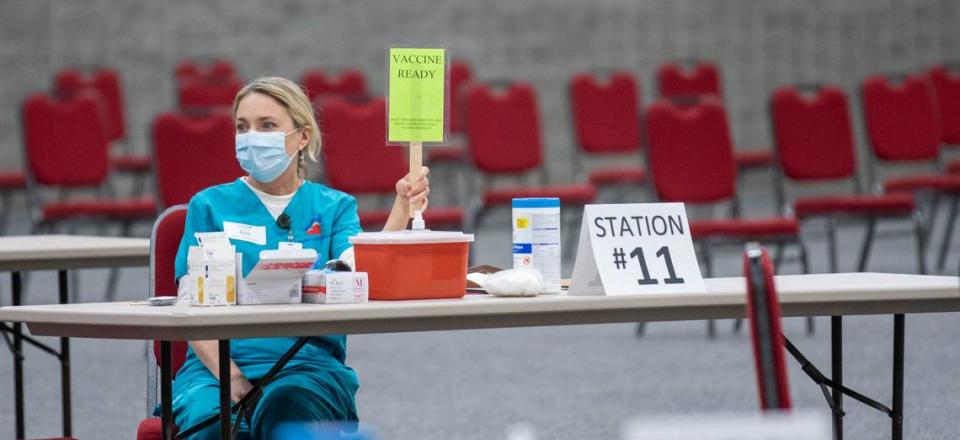
Smith, though, remains skeptical of being inoculated.
“This whole thing has just been so incredibly politicized,” Smith said.
“I’ve been kind of amazed ... of all of my associates and friends who either have felt socially pressured into getting the vaccine when they didn’t want to,” he said, “or just didn’t do any research about possible drawbacks to something — or dangers — to something that they were going to be putting in their bodies.”
Polk, of Winnsboro, added that the CDC’s handling of pandemic matters has been frustrating, too.
“You hear this one week, and then all of a sudden the so-called experts (say) ‘Oh, well, you really don’t have to do this,’” said Polk, referring to public health guidelines.
Criticisms like Polk’s and Smith’s are to be expected, Kirzinger said.
The Kaiser Family Foundation in an April poll found that 20% of Republicans nationwide say they will “definitely not” get vaccinated.
“A lot of this is directly tied to their views of the pandemic,” Kirzinger said. “They think that the media greatly exaggerated the impact of coronavirus. They were less likely to report wearing masks.”
The waiting game
Other S.C. residents may want a vaccine, but are still waiting a bit longer before getting inoculated.
Java Galipeau, for example, a 39-year-old event planner with a focus on candy and dessert services in Hanahan, a small city northwest of Charleston, plans to get vaccinated, yet as of Tuesday hadn’t scheduled an appointment for herself or her family.
She was wary of recieving a shot, at first. Galipeau worried about the vaccines’ speedy development and possible side effects.
“It felt like it was rushed,” Galipeau said.
As thousands of people got inoculated, though, she grew more comfortable with the vaccines. Friends of hers who are Texas doctors also told her about COVID-19 “long-haulers” who suffer from heart damage or lung issues.
Galipeau thought that sounded terrifying.
Getting vaccinated, she eventually figured, would be better than taking a chance with COVID-19.
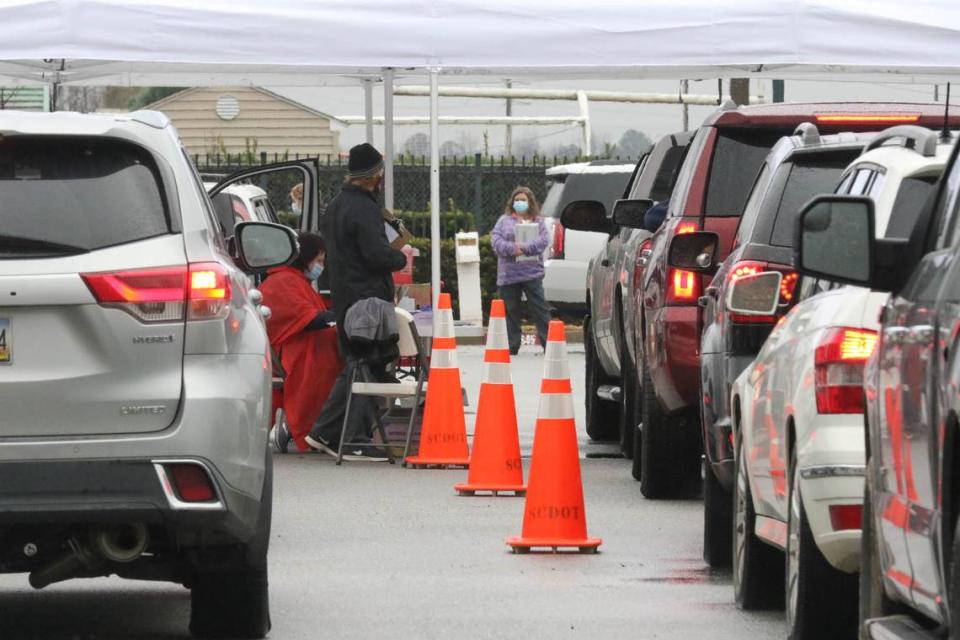
But Galipeau also decided that it was better to wait for her shot, allowing those who really needed doses to get inoculated first, she said.
She also wants Pfizer’s vaccine, and whether that’s available may factor into her ultimate decision to book an appointment, Galipeau said.
“I felt like (it’s) the highest level of protection,” she said of Pfizer’s product, which is more than 90% effective against COVID-19, according to company data. “I felt as if the Johnson & Johnson was a slightly lower quality, and it was being given to parts of the population who may not be able to demand the higher quality.”
Johnson & Johnson’s single-dose vaccine was 72% efficacious in the United States during a large-scale clinical trial. Experts argue that it’s still a remarkably good shot because it largely prevents severe disease. The company’s doses, which are “compatible with standard vaccine storage,” can be sent to rural areas that lack ultra-cold freezers.
Wary of the rollout
Some South Carolinians, though, are simply not interested in being vaccinated for now.
Lior Rennert, an assistant professor of biostatistics at Clemson University, stressed that residents’ worries “are obviously complicated.”
“You need to meet people where they’re at and address their concerns,” Rennert said.
Consider Kerrie Cornell, a Realtor in North Myrtle Beach, who said she’s “not an anti-vaxxer by any stretch of the imagination.”
But she’s resisted getting a shot so far and has no plans to be inoculated, despite family and friends having done so. In her view, the vaccines weren’t tested enough, and there was “a bigger push” to ready the doses quickly because of the pandemic’s severity.
Cornell was also infected with the coronavirus in December. Her physicians recommended that she wait several months before seeking out a vaccine, she said.
“We’re going to take a wait-and-see approach,” Cornell said, adding that if she does choose to get vaccinated, she would opt for Johnson & Johnson’s vaccine.
Kay Conaway, a 78-year-old Chapin resident near Columbia, isn’t too motivated, either.
“I don’t feel like I’m missing out on life,” said Conaway, who’s unvaccinated. “I’m still fine and happy, talking to my friends and everything. I’m a happy camper.”
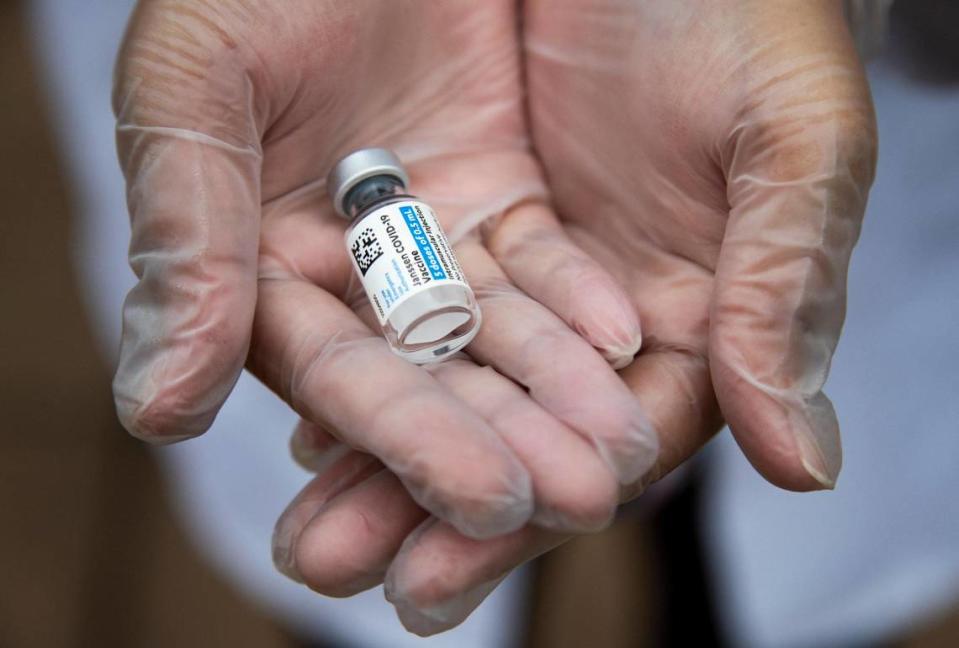
Conaway added that she’s not anti-vaccine and gets an annual flu shot. The rapid rollout of the COVID-19 inoculations, though, has made her nervous.
She’s troubled by other matters, too.
“I don’t know how much they’re playing around with this vaccine,” she said. “If the government wanted to do something, they had the perfect storm because everyone got involved and they had everyone under their control. They can do anything they want. That’s not a good scenario.”
Elizabeth Marinaro, of Myrtle Beach, also said that being vaccinated wouldn’t change her daily routine.
“I’m 83. I don’t go anywhere that much,” she said. “I’m just staying in. I don’t think I’ve had anybody in my house this whole year and a half.”
If anything would motivate Marinaro to get a jab, it’s her desire to travel.
Marinaro’s son-in-law, though, got vaccinated and had side effects for a few days, she said. While doctors maintain that’s a natural, expected response, Marinaro isn’t convinced.
“Why is he sick for a couple of days if he’s having the shot?” she said.
She’s also worried that long-term side effects could occur post-vaccination. And she’s not keen on the idea of booster shots, which may be used to combat coronavirus variants like B.1.351, which was first discovered in South Africa.
The vaccines’ development is another issue for Marinaro.
While COVID-19 vaccines were created in 2020, the mRNA technology used in Pfizer’s and Moderna’s vaccines was previously studied for decades, experts stress. mRNA platforms, in other words, were tested extensively before the pandemic hit, including in humans.
“We had the groundwork laid out,” said Dr. Ramesh Bharadwaj, an infectious disease physician at McLeod Health in the Pee Dee region. “That’s the reason they were able to ramp it up fairly quickly.”
Bharadwaj’s point, though, is of little comfort to Marinaro.
“It’s bearing on my mind that all this stuff is just going too fast,” she said.
Note: Data in this story are current as of Wednesday.
